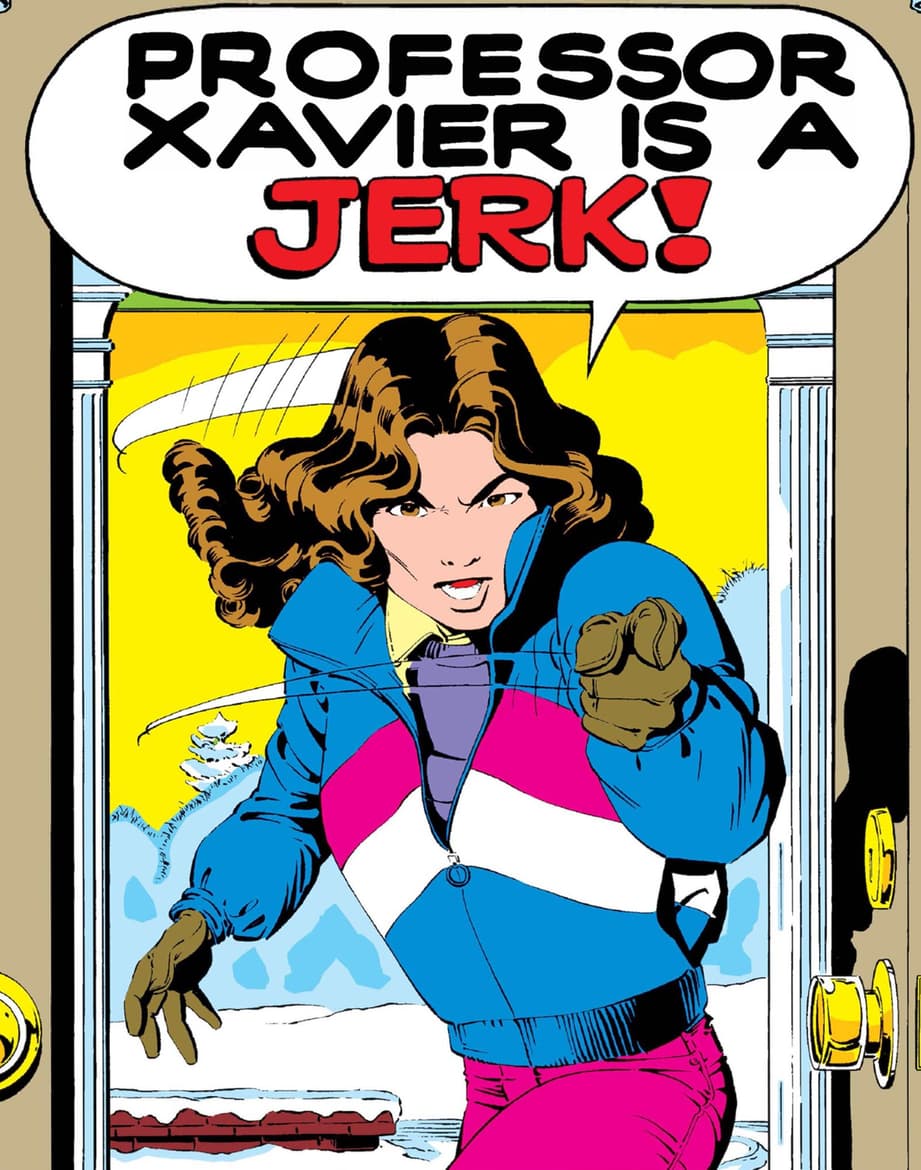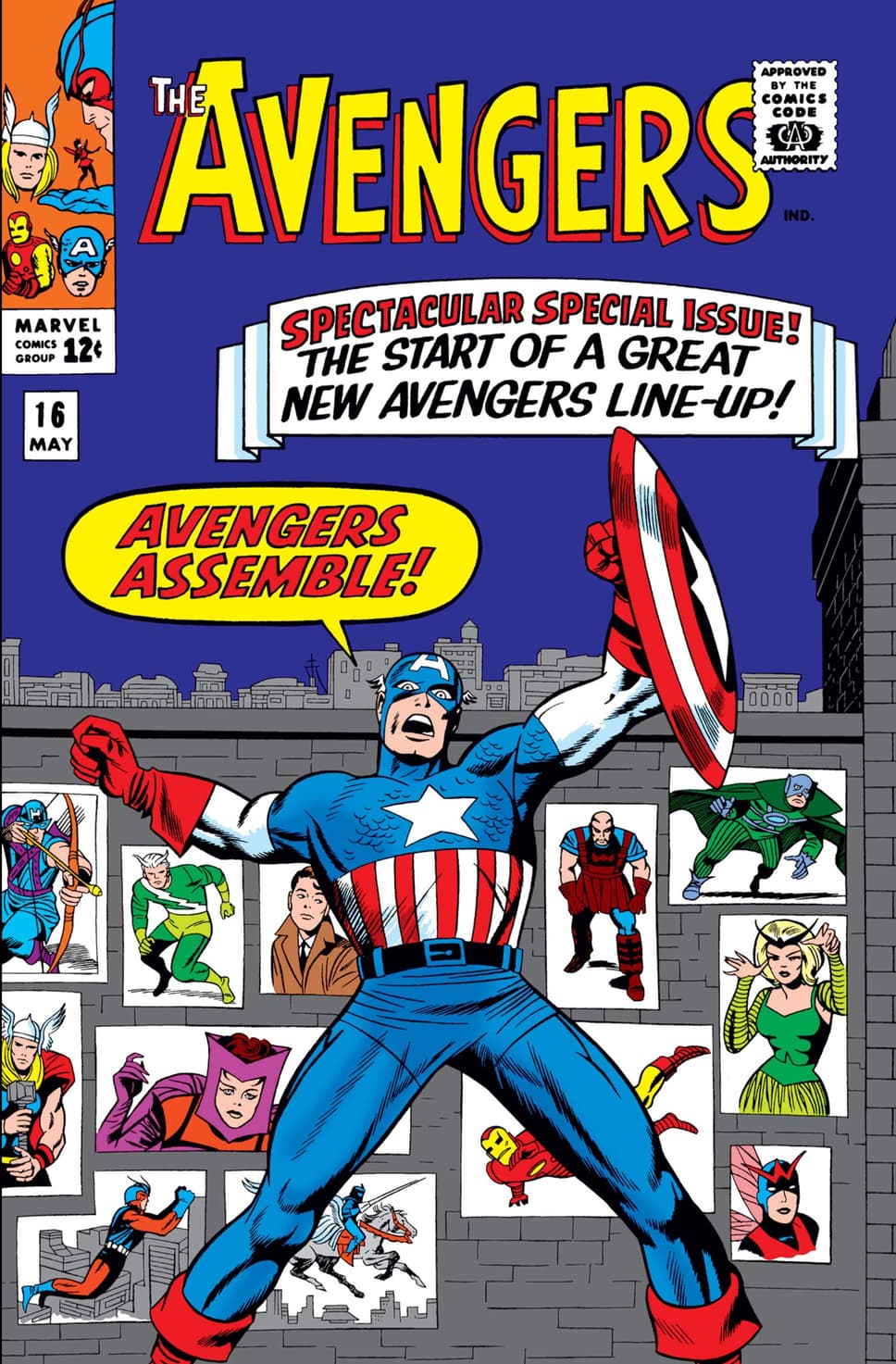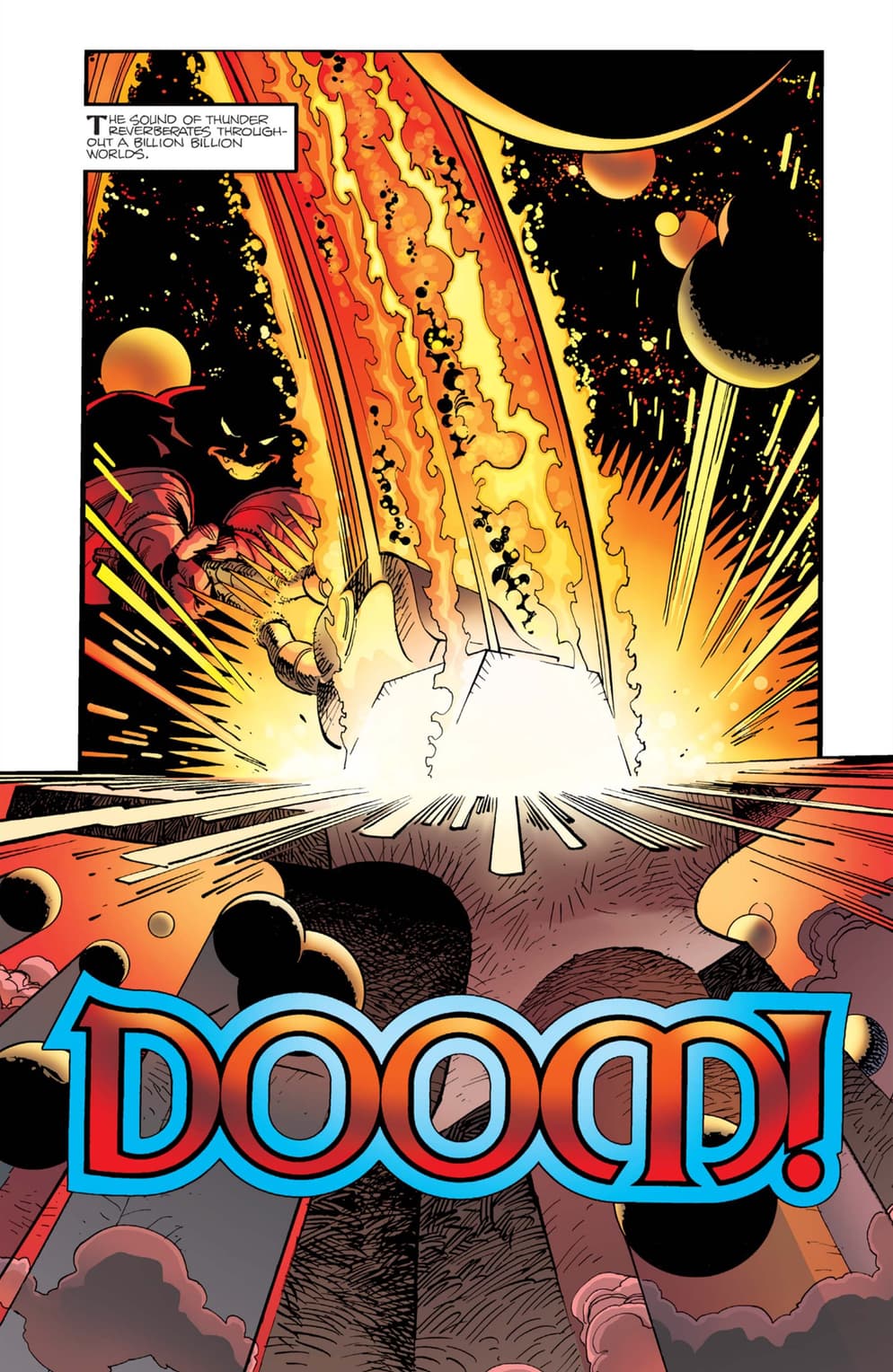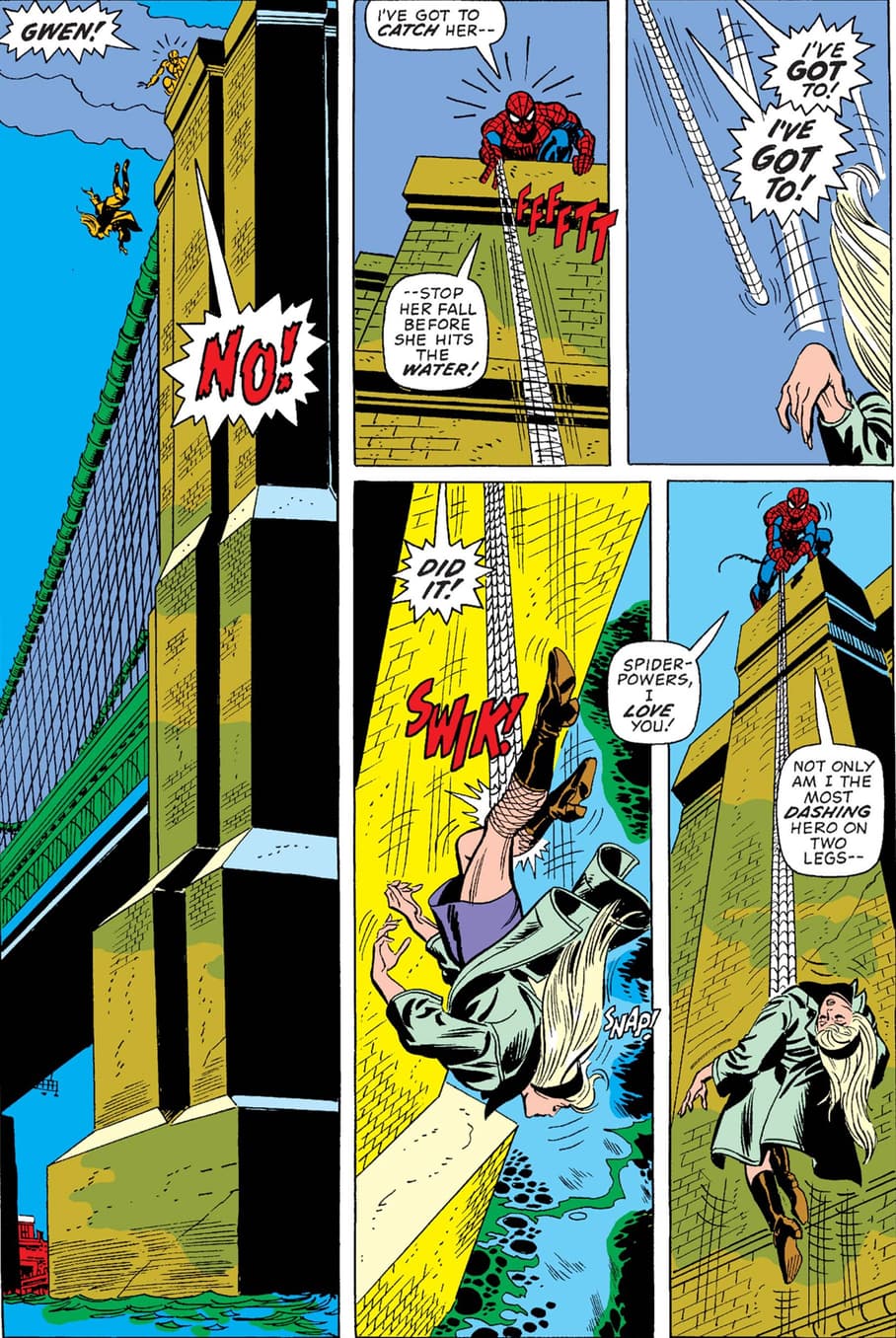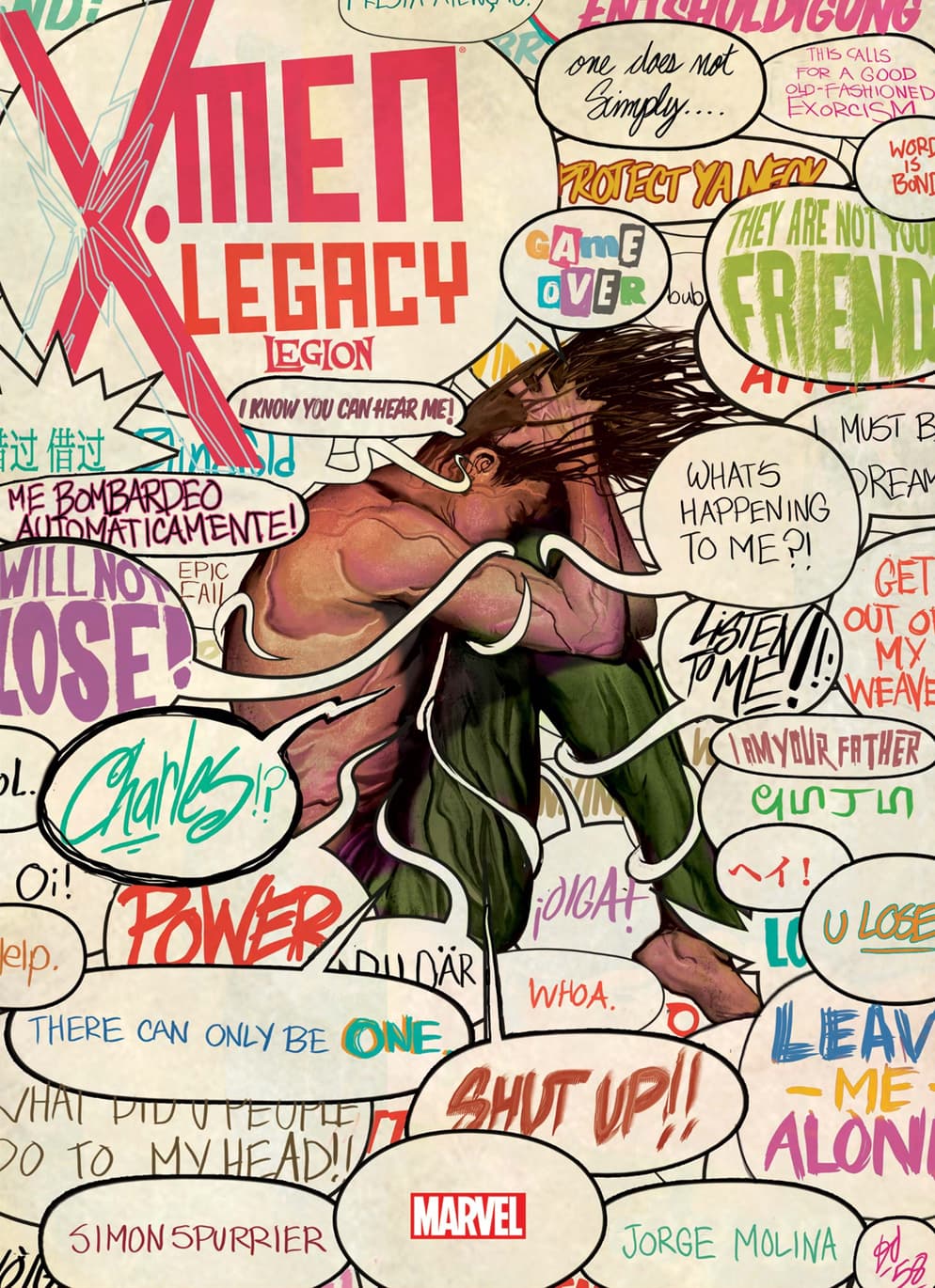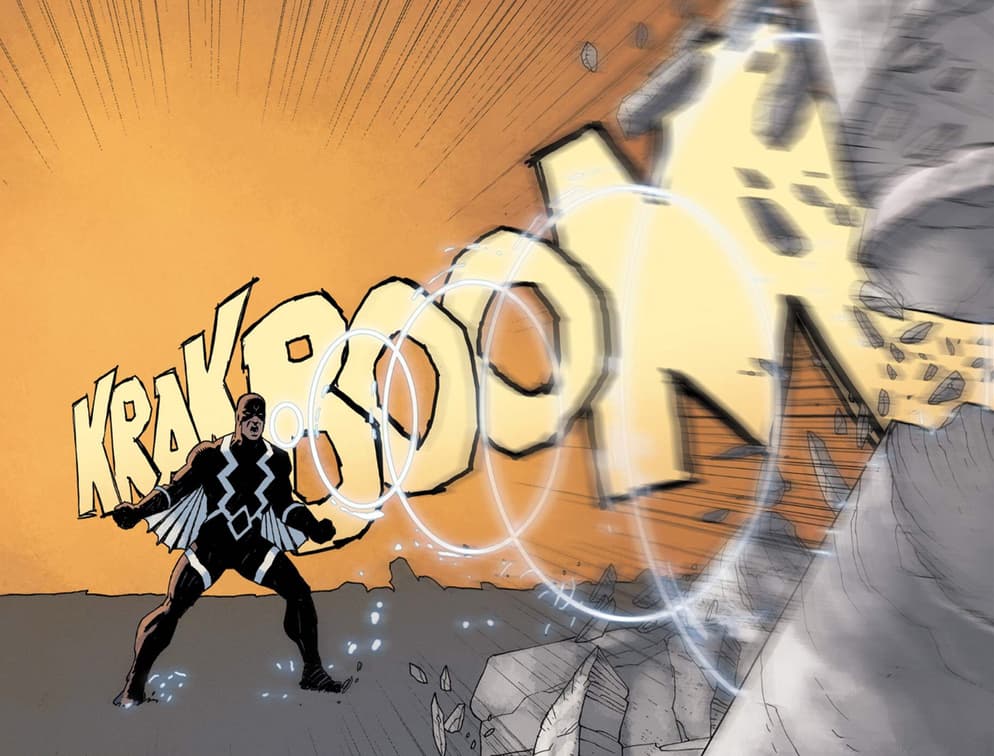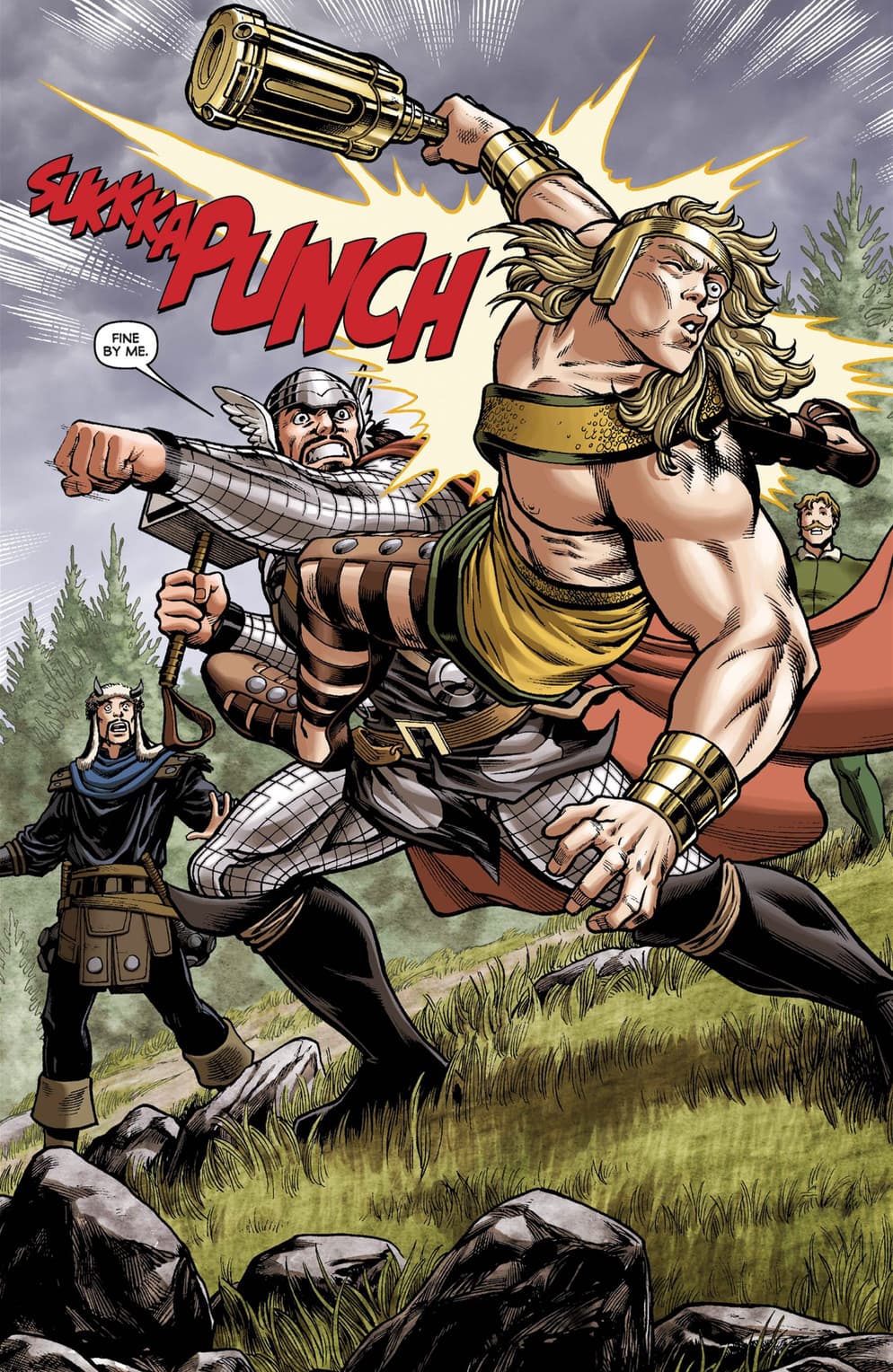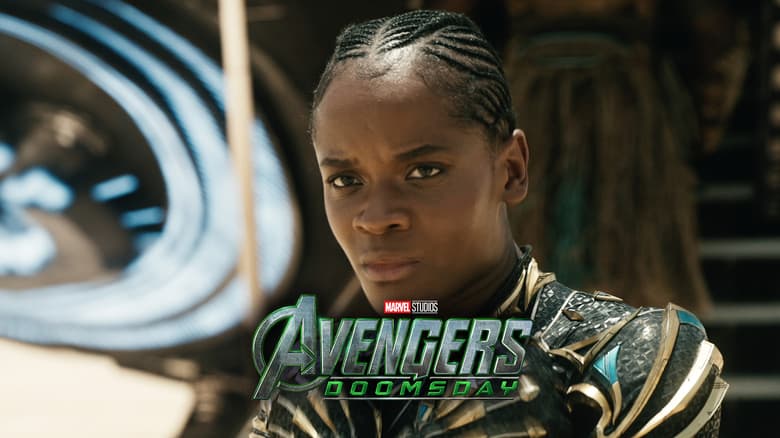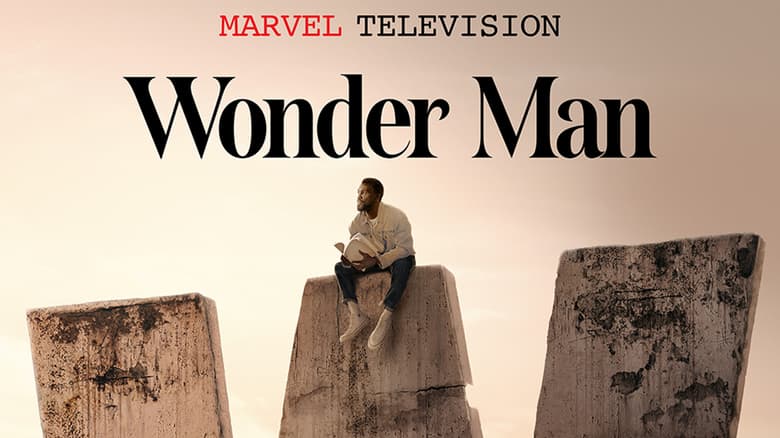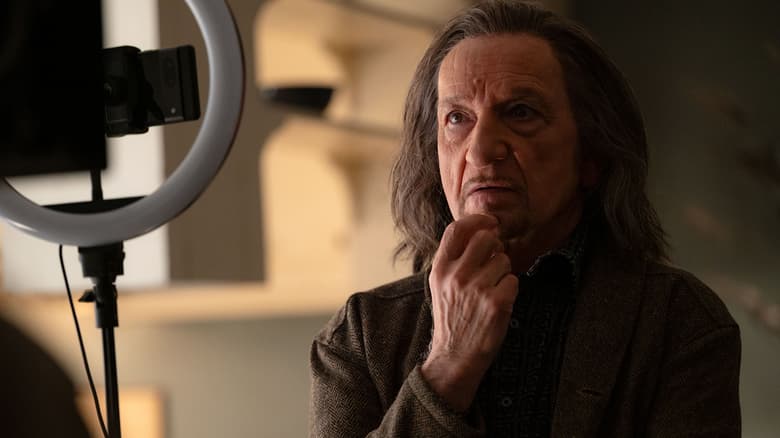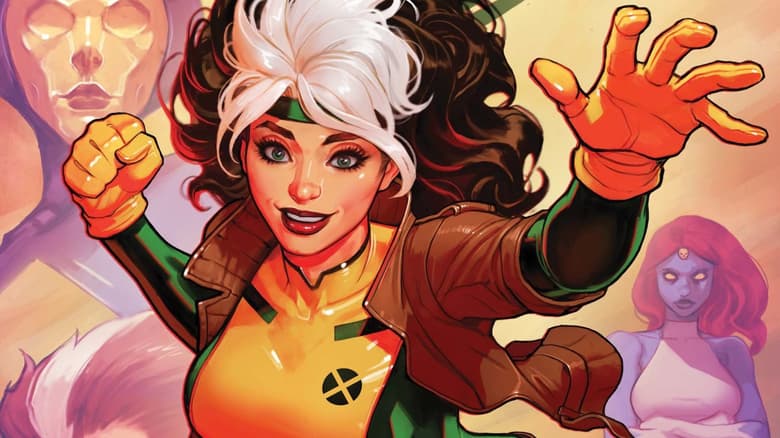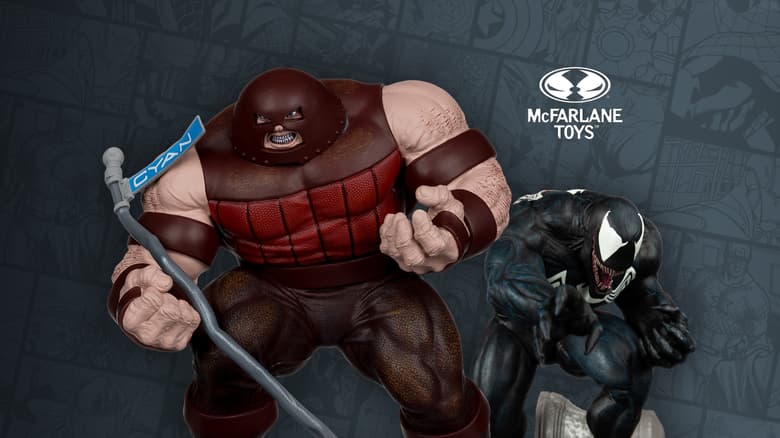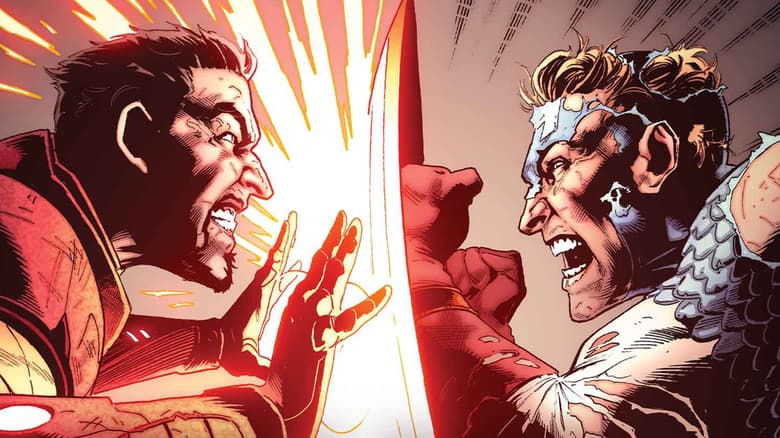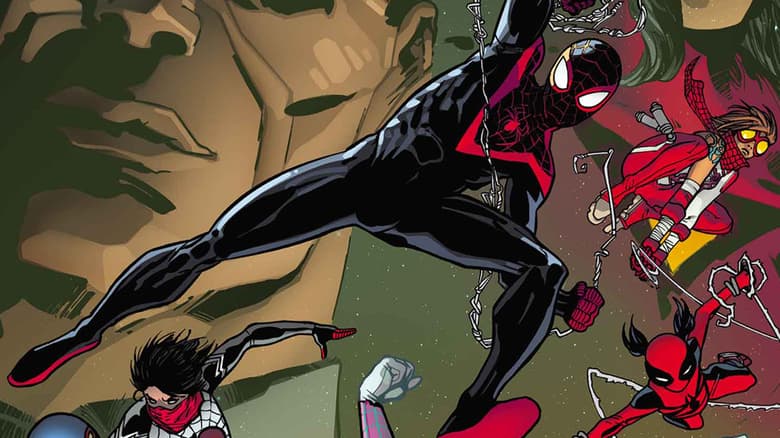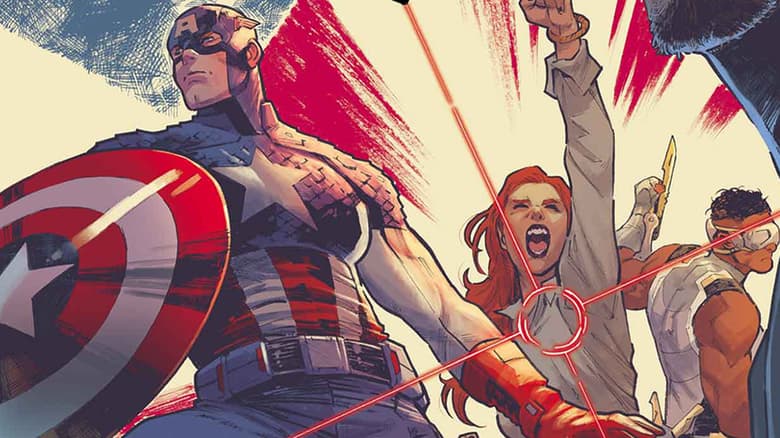Memorable Moments in Marvel Lettering
Check out some of the most memorable moments in Marvel lettering history, from 'Uncanny X-Men' to 'Incredible Hercules' and beyond.
From dialogue and word balloons to epic fight scenes with bombastic sound effects, lettering plays a crucial role in comic book storytelling. Letterers bring words and artwork together through a range of skills, including traditional and digital calligraphy, graphic design, and their own storytelling sensibilities. From writing out the words in a comic book to rendering sounds as onomatopoeia, lettering is the so-called ‘Invisible Art’ of comics and plays a critical role in any satisfying reading experience.
As part of our month-long celebration of lettering, we’re taking a closer look at some great examples of lettering from across Marvel history. Let’s dig into how the lettering on these pages works as an essential part of the story.
PROFESSOR XAVIER IS A JERK
In one of the X-Men’s most memorable pages, Kitty Pryde proclaims, “Professor Xavier is a jerk!” at the start of UNCANNY X-MEN (1963) #168 by Chris Claremont, Paul Smith, Bob Wiacek, Glynis Wein, and letterer Tom Orzechowski. This moment occurred shortly after Xavier told Pryde she would be transferring from the main X-Men team to the New Mutants, a team of younger heroes who were closer to her age.
Although Xavier eventually let Kitty stay with the adult X-Men team, this page perfectly captures the youthful petulance of the teenage mutant in this moment. With Orzechowski’s oversized lettering, these words simultaneously serve as Kitty’s dialogue and as the attention-grabbing title page of the issue, creating an image that perfectly captures Kitty’s emotional state.
CAPTAIN AMERICA ASSEMBLES THE AVENGERS
In AVENGERS (1963) #10, Thor used the team’s iconic catchphrase, “Avengers Assemble!” for the first time. However, Captain America didn’t utter that iconic phrase until AVENGERS (1963) #16 by Stan Lee, Jack Kirby, Dick Ayers, Stan Goldberg, and letterer Artie Simek. After Iron Man, Wasp, and Hank Pym’s Giant-Man step away from the team, this issue sees Captain America become the Avengers’ new leader when Hawkeye, Scarlet Witch, and Quicksilver join up.
Throughout the middle of the 20th century, comic book covers regularly carried bombastic word balloons or captions meant to catch a prospective reader’s attention. Along with a large caption box teasing the Avengers’ new line-up, this cover has Captain America dramatically say, “Avengers Assemble” in an eye-catching font that echoes the colors of the comic’s logo and creates a striking contrast against its blue background. Beyond simply enticing readers, this cover visually establishes Captain America’s leadership and the team’s catchphrase as central parts of Avengers lore.
THOR TEASES SURTUR’S DOOM
One of Thor’s most celebrated epics started with a warning. In THOR (1966) #337, Walter Simonson, George Roussos, and letterer John Workman Jr. kicked off Simonson’s run on the God of Thunder with the giant ominous figure of Surtur hammering the heart of an exploding star on an anvil. Described as echoing through “a billion billion worlds,” this impossibly loud scene is completed by a giant “DOOM!” sound effect, written in a Norse-inspired font.
In the lead-up to Surtur’s attack on Asgard, similar scenes appeared in THOR for over a year as the Fire Giant forged his sword and built his army, each with a stylistic “DOOM” sound effect. While Workman’s distinctive lettering appears throughout this era, these Surtur interludes memorably use “DOOM!” as both onomatopoeia and a tension-building tease of Surtur’s power.
GWEN STACY’S DEATH
While the giant size of some sound effects helps them catch a reader’s attention, smaller onomatopoeias can carry just as much weight. Infamously, a small sound effect changed the course of Marvel history in THE AMAZING SPIDER-MAN (1963) #121 by Gerry Conway, Gil Kane, John Romita, Tony Mortellaro, David Hunt, and letterer Artie Simek. After the Green Goblin throws Gwen Stacy off of a bridge, Spider-Man makes an ill-fated attempt to save her. While Spider-Man’s dialogue and the “SWIK” of his web catching her leg are the most visible text elements of the page, a small “SNAP” accompanies her fatal fall.
Despite its size, this sound effect carries critical story information that has informed decades of subsequent Spider-Man plots. Without the “SNAP,” Peter Parker seems blameless in Gwen’s death. However, that sound effect potentially implicates Spider-Man by suggesting that his webbing caused the whiplash that snapped her neck, a thought that has haunted Peter for years.
LEGION OVERWHELMED
For characters with distinct voices like Venom, letterers will occasionally portray dialogue through specialized fonts that make their unique sound stand out on the page. Mike Del Mundo’s cover to X-MEN: LEGACY (2012) #6 by Simon Spurrier, Jorge Molina, Norman Lee, Walden Wong, Rachelle Rosenberg, and letterer VC’s Cory Petit pushes this concept to the extreme with the character Legion. David Haller, the son of Professor X, has the mutant ability to spontaneously generate new powers, each with its own accompanying persona in his mind.
This cover visualizes Legion’s relationship to his personas by casting him as an overwhelmed figure engulfed in a cloud of word balloons that represent his personas, each with a distinct font that symbolizes its unique voice. The text in these balloons plays an essential part of this cover, which crystallizes the symbolic struggle of its main character in one striking image.
BLACK BOLT SCREAMS
Black Bolt, the longtime leader of the Inhumans, has a devastatingly powerful sonic scream. As Donny Cates, Ariel Olivetti, Jordie Bellaire, and letterer VC's Clayton Cowles demonstrated in DEATH OF THE INHUMANS (2018) #2, Black Bolt’s scream is strong enough to knock down a building with a single word. In response to a Kree attack on the Inhumans, Black Bolt uses his powers to tear through their base before leveling their headquarters with a powerful yell, embodied by a “KRAKBOOM” sound effect.
For Black Bolt and other characters with powers based on sounds or voices, letterers can play a critical role in visually demonstrating those abilities and their effect on the page. Here, the sound effect that captures the deafening roar of Black Bolt’s scream simultaneously serves as an onomatopoeia, a piece of dialogue, and part of the artwork.
THOR VS. THE INCREDIBLE HERCULES
Thor and Hercules have traded blows dozens of time throughout Marvel history. However, one of their fights had a decidedly different feel in INCREDIBLE HERCULES (2008) #136 by Greg Pak, Fred Van Lente, Reilly Brown, Nelson DeCastro, Ulises Arreola, Sotocolor’s A. Street, Guillen Nari, and letterer Simon Bowland. After Hercules impersonated Thor, this light-hearted tale saw Thor impersonate Hercules and confront the Greek demigod. As the pair fought, their battle was accompanied by descriptive sound effects like “SUKKAPUNCH, “NURP,” and “HHWEDGIE.”
While sound effects visually represent the impossibly loud sounds of superhero action, they also help set a story’s tone. In this fight, these inventive sound effects match the comic’s established comedic tone by adding another layer of visual humor to this epic scene, as similar onomatopoeia did throughout the rest of this fan-favorite series.
We're celebrating our letterers all month long! Don't miss our Letterer Appreciation Day 2022 post, which collects all our lettering coverage so far.
You can grab these comics and more digitally or at your favorite local comic book shop. Be sure to ask your local shop about their current business policies to observe social distancing or other services they may offer, including holding or creating pull lists, curbside pick-ups, special deliveries, and other options to accommodate. Find and support your local comic book shop at ComicShopLocator.com or by visiting Marvel.com/LoveComicShops.
For digital comics, all purchases in the Marvel Comics app can be read on iPhone®, iPad® and select Android™ devices! Our smart-paneling feature provides an intuitive reader experience, ideal for all types of mobile device and tablet users! Download the app on iOS and Android now!
The Daily Bugle
Can’t-miss news and updates from across the Marvel Universe!
